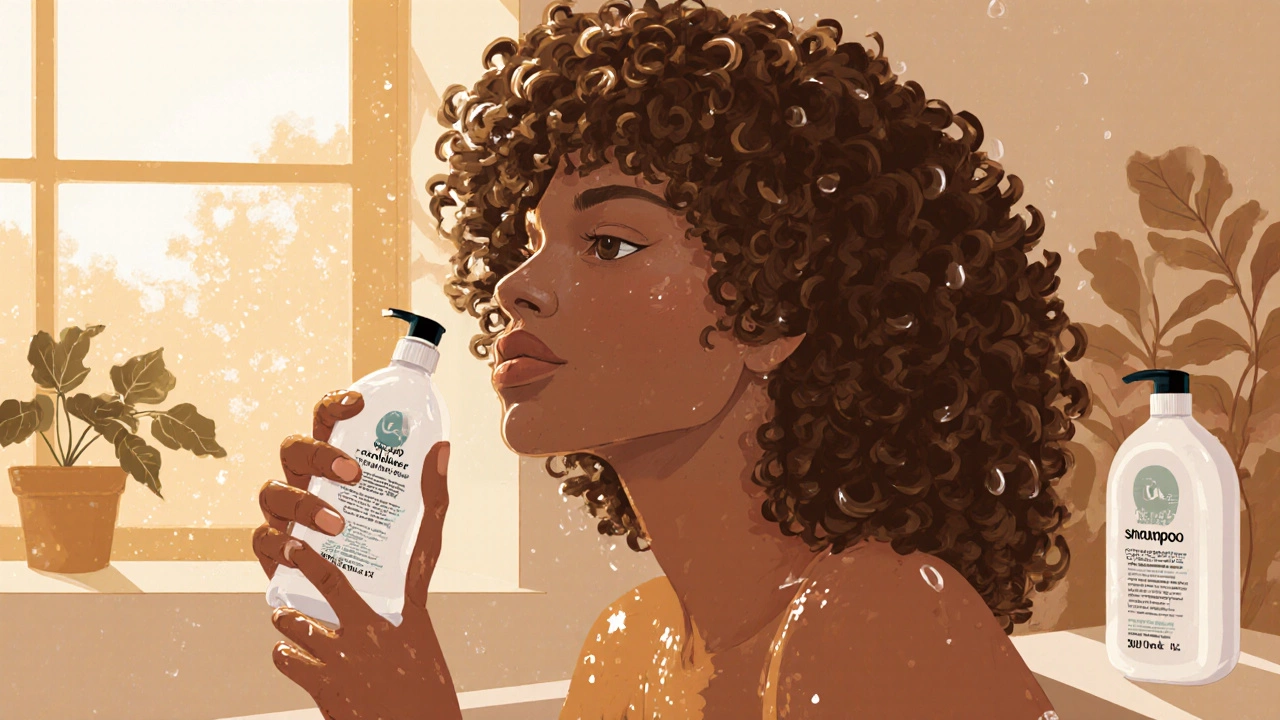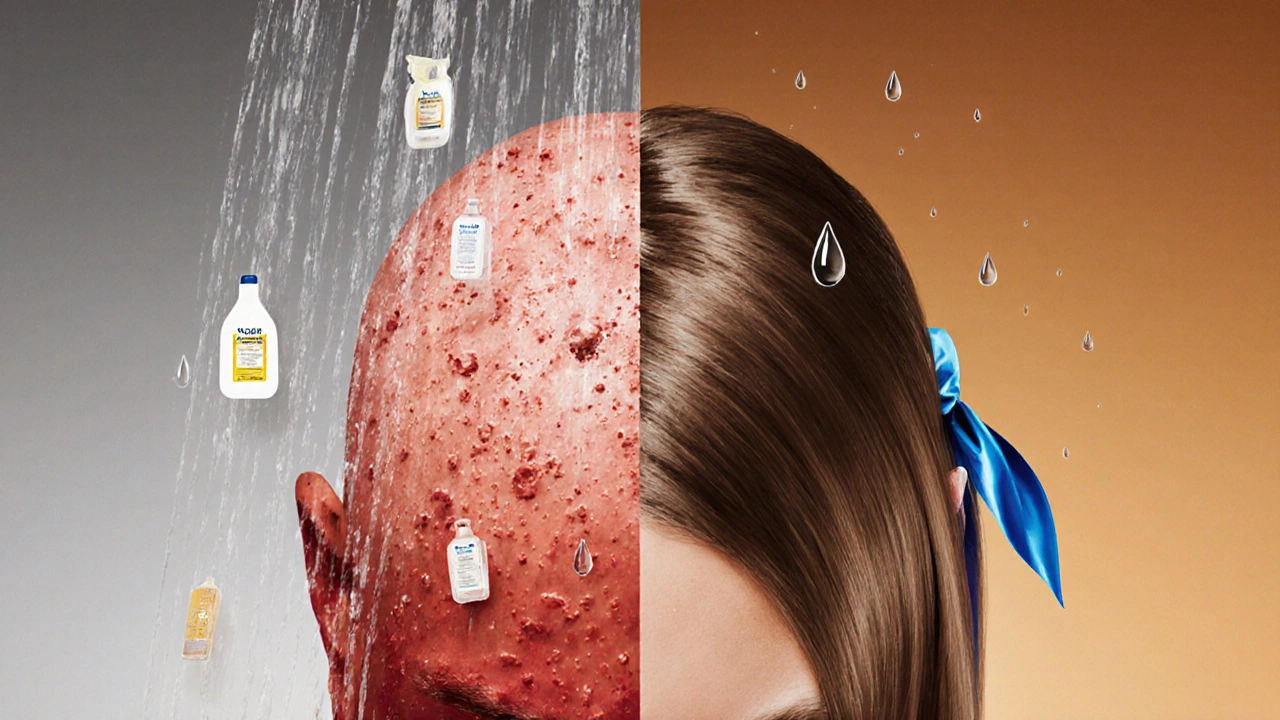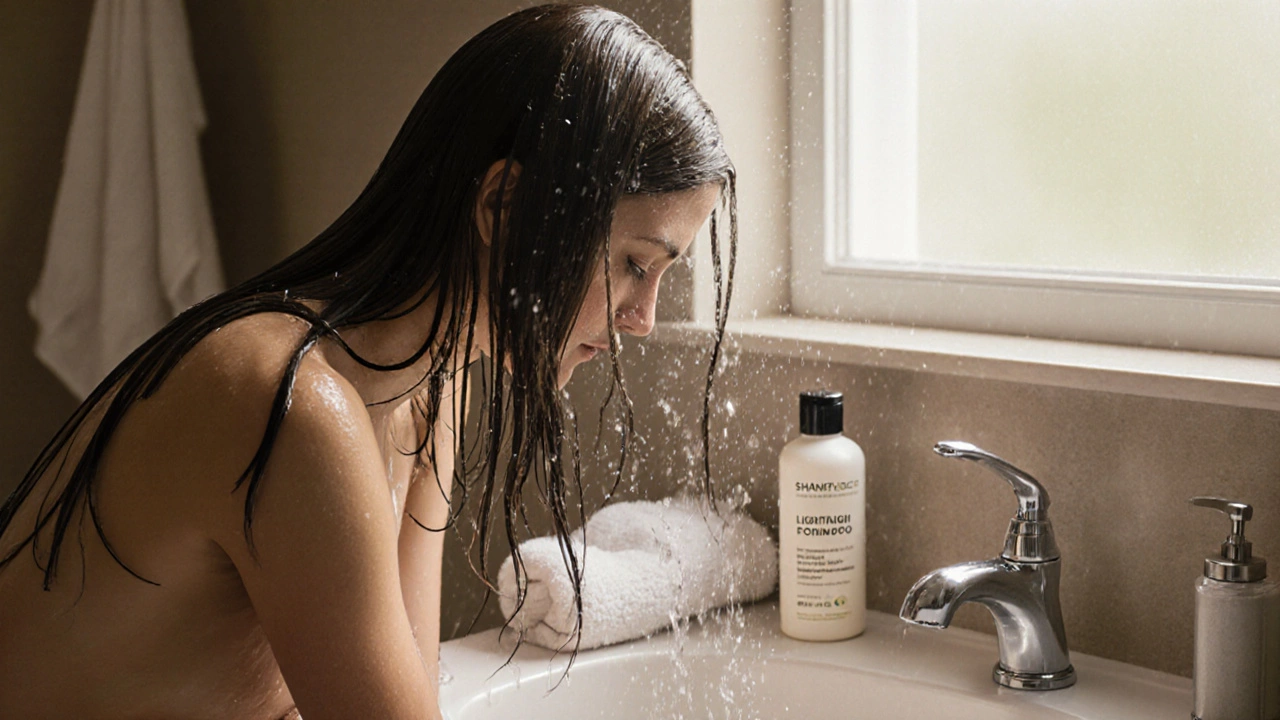Hair Washing Frequency Calculator
How often should you wash your hair?
This calculator helps you find your optimal hair washing frequency based on your unique hair type, scalp condition, lifestyle, and season. Answer the questions below for a personalized recommendation.
Your Recommendation
Washing your hair too much can dry it out. Washing it too little can make it look greasy and flat. So how often should you really wash your hair? The answer isn’t one-size-fits-all. It depends on your hair type, scalp condition, lifestyle, and even the climate you live in. There’s no magic number-no rule that says you must wash every other day or once a week. But there are clear patterns that work for most people.
Your Hair Type Matters More Than You Think
If you have fine, straight hair, you probably notice oil buildup faster. That’s because sebum (your scalp’s natural oil) travels easily down the strand. For many people with this hair type, washing every other day or every two days keeps things looking fresh. But if you wash daily, you’re stripping away natural oils that help your hair stay soft and strong. Over time, your scalp can overproduce oil to compensate, making the problem worse.
Thick, curly, or coily hair is different. The curl pattern slows down how fast oil moves from your scalp to the ends. People with these hair types often go 7 to 14 days between washes without looking greasy. In fact, washing too often can lead to dryness, frizz, and breakage. Many with natural hair wash once a week or even less, using co-washing (conditioner-only cleanses) in between to refresh without stripping moisture.
Scalp Health Is the Real Decider
It’s not just about your hair-it’s about your scalp. If you have a dry, flaky scalp, washing too often can make dandruff worse. If you have an oily, itchy scalp, you might need to wash more frequently. Some people develop seborrheic dermatitis, a condition that causes excess oil and flaking. In those cases, dermatologists often recommend medicated shampoos with zinc pyrithione or ketoconazole, used 2-3 times a week, not daily.
Try this simple test: If your scalp feels tight, itchy, or flaky after washing, you’re probably washing too much. If your hair looks greasy by day two and you feel self-conscious, you might need to wash more often-or switch to a gentler shampoo.
Lifestyle Changes How Often You Need to Wash
Do you work out every day? Sweat mixes with oil and product buildup, so you might need to rinse or wash more often. But you don’t always need shampoo. A quick water rinse after a workout, followed by a scalp massage with your fingers, can remove sweat without stripping oils. For those who swim regularly, chlorine and saltwater can dry out hair. Rinse immediately after swimming, and use a clarifying shampoo once a week to remove buildup.
If you use a lot of styling products-mousses, gels, sprays-you’ll build up residue faster. That’s when a sulfate-free clarifying shampoo every 10-14 days helps reset your hair. But if you mostly air-dry with minimal product, you can go longer between washes.

Seasonal Changes Affect Your Routine
In winter, indoor heating dries out your scalp. Many people find they need to wash less often during colder months. Your scalp produces less oil naturally when the air is dry. In summer, humidity and sweat can make hair look limp. You might need to wash more frequently then, or use dry shampoo between washes to extend the life of your style.
People in coastal areas like Brighton, where salt air and wind are constant, often notice their hair gets gritty or tangled faster. Rinsing with fresh water after beach days helps, even if you’re not washing with shampoo.
What About Dry Shampoo?
Dry shampoo isn’t a replacement for washing-it’s a temporary fix. It absorbs oil on the surface, but doesn’t clean dirt, sweat, or dead skin cells from your scalp. Using it too often can clog follicles and cause buildup. Stick to using it once or twice between washes, and make sure you’re brushing it out thoroughly. Look for formulas without talc or alcohol if you have a sensitive scalp.
Signs You’re Washing Too Much
- Your hair feels brittle or straw-like
- You notice more breakage than usual
- Your scalp is red, flaky, or irritated
- Your color fades faster than it should
- You feel like you need to wash every day just to look decent
If this sounds familiar, try stretching your wash schedule. Start by skipping one wash a week. Use a silk scarf or bonnet at night to reduce friction. Try a leave-in conditioner or scalp oil to soothe dryness.

Signs You’re Washing Too Little
- Your scalp feels itchy or greasy by day three
- Your hair looks flat and lifeless
- You have visible flakes or dandruff
- People comment on your hair looking dirty
These are signs your scalp needs a better balance. Try switching to a gentle, sulfate-free shampoo. Massage your scalp with your fingertips for 60 seconds each wash to stimulate circulation and lift buildup. Avoid harsh scrubbing with nails-that can damage your scalp.
Real-World Examples That Work
Here’s what works for real people:
- Thin, straight hair, active lifestyle: Wash every other day with a lightweight shampoo. Use dry shampoo on non-wash days.
- Thick, curly hair, low-product routine: Wash once a week with a moisturizing shampoo. Co-wash mid-week with a silicone-free conditioner.
- Chemically treated hair (color, relaxers): Wash every 5-7 days with a color-safe, low-sulfate shampoo. Deep condition weekly.
- Scalp psoriasis or eczema: Wash every 2-3 days with a medicated shampoo. Follow with a fragrance-free conditioner.
There’s no need to copy someone else’s routine. Track your hair for two weeks. Note how it looks and feels each day. Adjust slowly. Your hair will tell you what it needs.
Final Tip: Listen to Your Hair, Not the Internet
TikTok and Instagram will tell you to wash once a month or every day. Neither extreme works for most people. The truth is, healthy hair care is about balance, not extremes. Your hair and scalp are living systems. They adapt. They respond. They need consistency, not trends.
Start by washing every three days. See how your scalp feels. Adjust by one day at a time. In a few weeks, you’ll find your sweet spot. And once you do, you won’t need to ask this question anymore.
Should I wash my hair every day?
Most people don’t need to wash their hair every day. Daily washing can strip natural oils, leading to dryness and increased oil production. Only wash daily if you have very fine hair, sweat heavily every day, or use heavy styling products that build up quickly. For most, every 2-4 days is enough.
Why does my hair get greasy so fast?
Fast oiliness usually comes from overwashing, which tells your scalp to produce more sebum. Other causes include using heavy shampoos, hormonal changes, or not rinsing thoroughly. Try switching to a gentle, sulfate-free shampoo and massaging your scalp gently. Avoid applying conditioner to your roots.
Can I just rinse my hair with water instead of shampoo?
Yes, rinsing with water is fine for days when you’re not sweaty or product-heavy. Water removes surface dust and sweat without stripping oils. But water alone won’t clean buildup from styling products, pollution, or excess sebum. Use shampoo once or twice a week to keep your scalp healthy.
Does washing less make hair healthier?
Washing less can help if you’re currently overwashing. But washing too little can cause buildup that clogs follicles and leads to breakage or scalp issues. Healthy hair isn’t about washing less-it’s about washing correctly. Find the balance where your scalp feels clean and your hair feels soft, not greasy or dry.
What shampoo should I use based on my hair type?
For fine hair: Use a lightweight, volumizing shampoo without heavy silicones. For curly or dry hair: Choose a moisturizing, sulfate-free shampoo with natural oils like shea or argan. For color-treated hair: Use a shampoo labeled color-safe and low-sulfate. For oily scalp: Look for clarifying ingredients like tea tree or charcoal, but use only 1-2 times a week.

